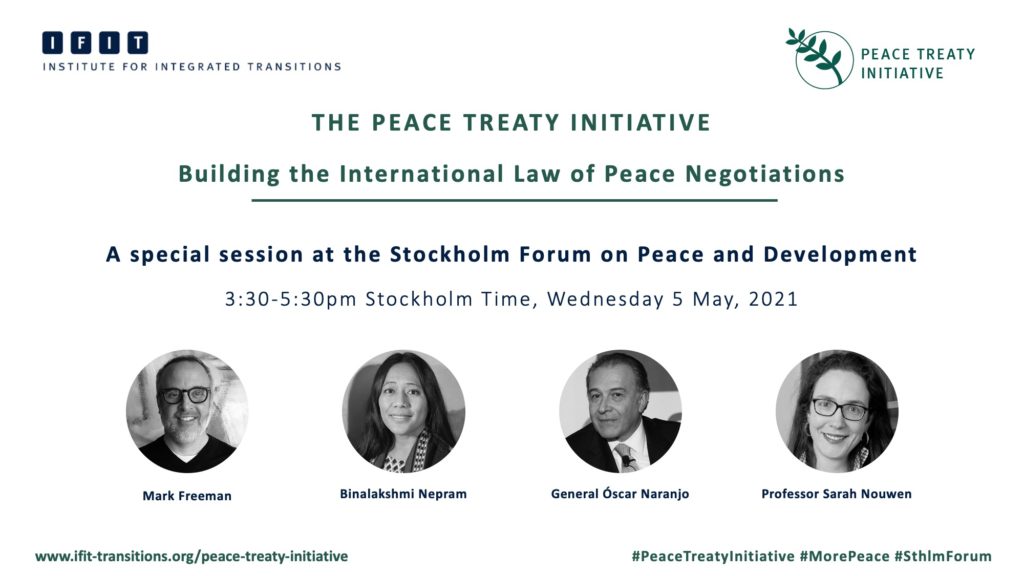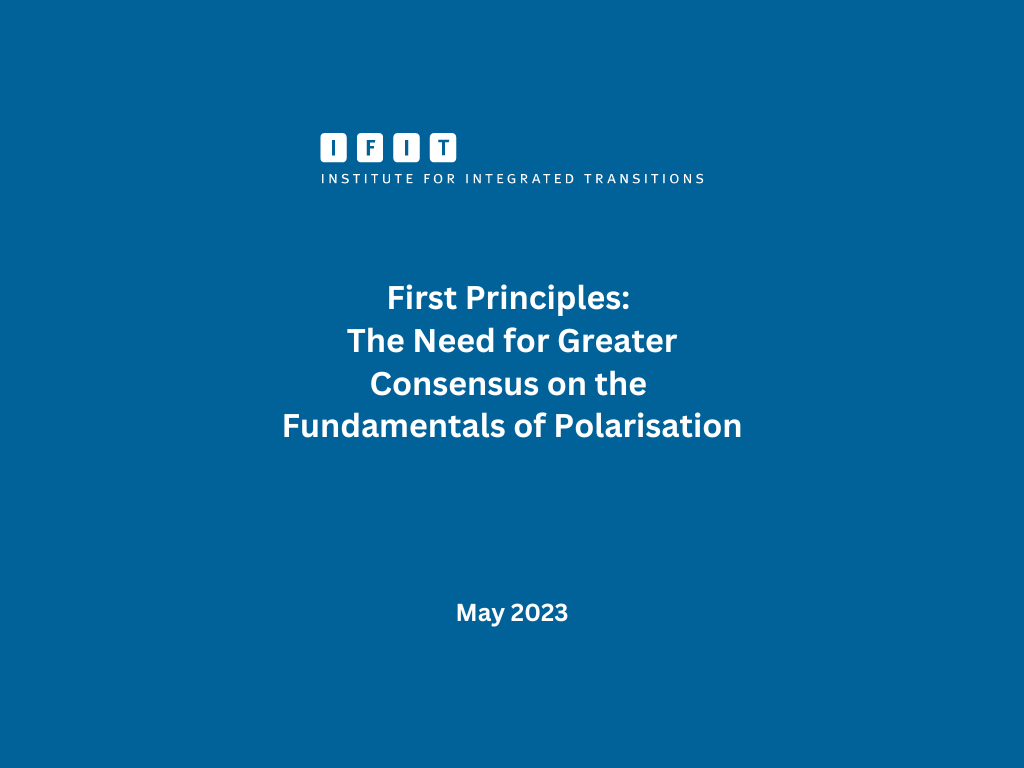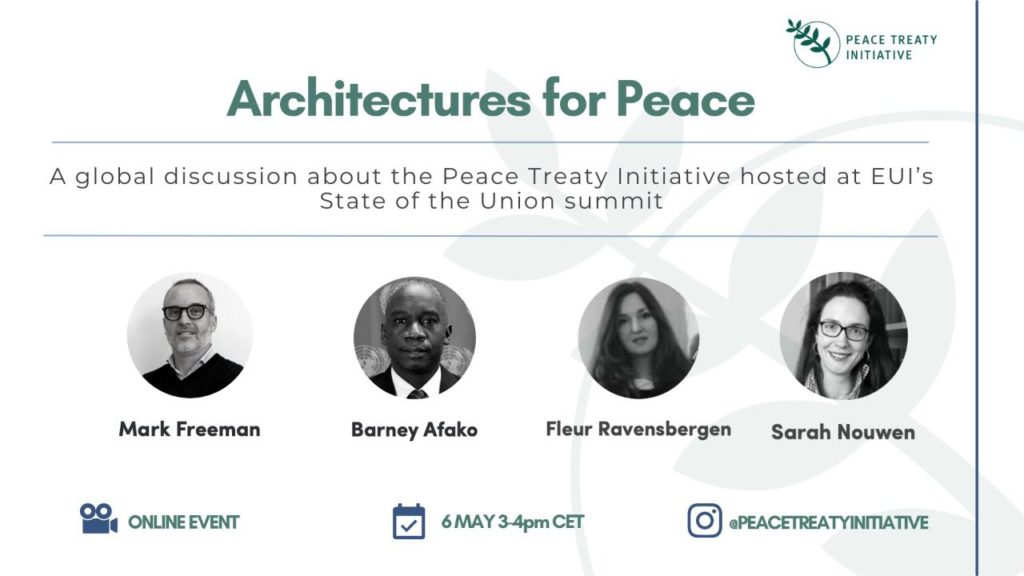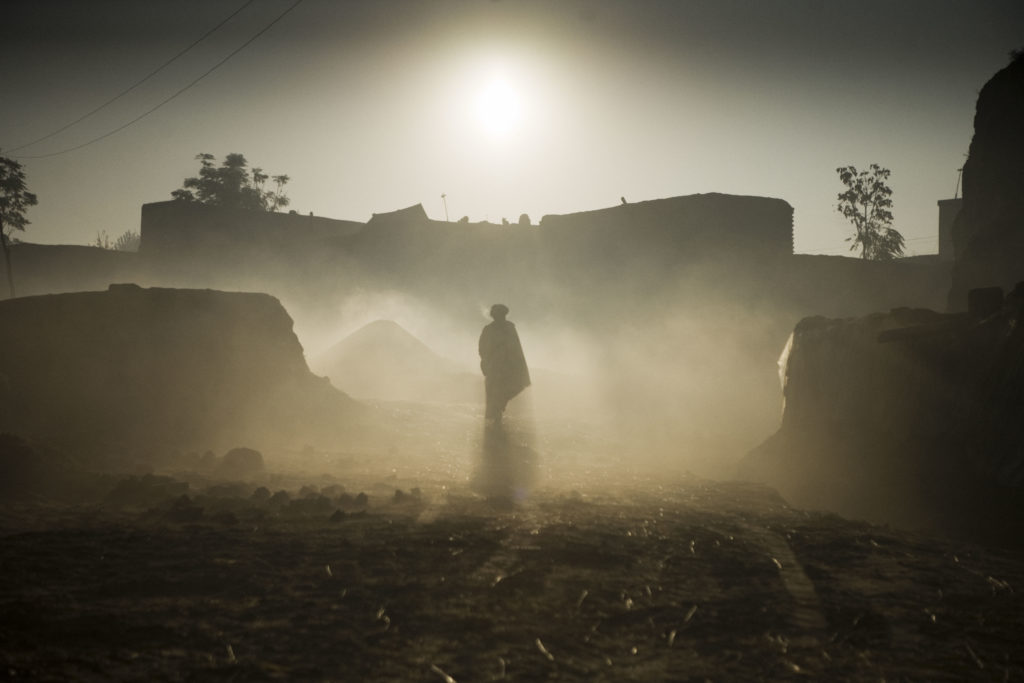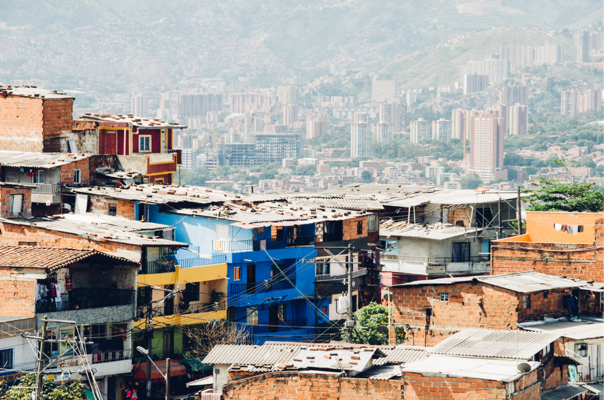Expert Team: Global Initiatives
Mr. Diego García-Sayán has served as UN Special Rapporteur on the independence of judges and lawyers since December 2016. Mr. García-Sayán was a judge of the Inter-American Court of Human Rights for two consecutive terms. During his tenure, he was elected Vice-President of the Court (2008-2009) and President of the Court for two consecutive terms (2009-2013).
Mr. García-Sayán has broad experience working for multilateral organizations such as the United Nations and the Organization of American States. Previous responsibilities include: representative of the UN Secretary-General for the Peace Agreements at El Salvador and for the subsequent verification of the agreements, reporting directly to the Security Council; member and Chairperson of the UN Working Group on Enforced or Involuntary Disappearances; member of the Redesign Panel on the United Nations System of Administration of Justice, appointed by the UN Secretary-General in 2006; Head of the Electoral Mission of the Organization of American States (OAS) in Guatemala during the general elections (2007).
Mr. García-Sayán was Minister of Justice during the democratic transition in Peru and Minister of Foreign Affairs. He was also President of the High Level Commission to design and implement the Museum of Memory, Tolerance and Social Inclusion in Peru, inaugurated in December 2015. Mr. García-Sayán is the author of several books on international law and development.
You may also be interested in
Daman Nath Dhungana, MA, BL is a senior advocate and a legal luminary of Nepal. He is a member of Kathmandu University School of Law Planning Advisory Committee.
A former Speaker of the House of Representatives, Dhungana was also a Founder Executive Member of Amnesty International. In 1990 he served as member of the Constitution Recommendation Commission co-drafting Nepal’s second parliamentary Constitution. Dhungana was President of the Supreme Court Bar Association in 1984, General Secretary of the Nepal Bar Association 1971-73 and 1976-79, Founder Executive Member of the Nepal Law Society and President of Transparency International (Nepal Chapter) from 1997 to 1998. To add to his credentials, he served as Member of Parliament, was appointed as National Facilitator, Advisor and Observer of Nepal’s peace negotiations processes from 2003 to 2009, and was the principal advocate for the establishment of a Constituent Assembly in Nepal since the mid 1990’s to draft a new democratic constitution for the country. Dhungana is a founder-member of Nepal Transitions to Peace (NTTP) initiative. Dhungana is also the Chairperson of the Board of Trustees of Kathmandu University.
You may also be interested in
Based in Oslo, Dag Halvor Nylander is the newly-appointed Director of the Norwegian Centre for Conflict Resolution (NOREF). Nylander comes from the position as director and head of the Section for Peace and Reconciliation in the Norwegian Ministry of Foreign Affairs (MFA).
In his diplomatic career, Nylander has held the prominent role of mediator and Norwegian special envoy to Colombia. From 2010 to 2016 he led the Norwegian facilitation of the peace process between the Colombian government and the FARC. This work built on the foundations laid from 2006 to 2008, when he headed the Norwegian embassy in Bogotá. In 2017 he was appointed the United Nations Secretary-General’s personal representative on the border controversy between Venezuela and Guyana, and from 2018 he has been director and head of the Section for Peace and Reconciliation in the MFA. He is a jurist by education and has practised both as a lawyer and an assistant judge.
You may also be interested in
Binalakshmi “Bina” Nepram is an indigenous scholar and a woman human rights defender, whose work focuses on deepening democracy and championing women-led peace, security, and disarmament in Manipur, Northeast India, and South Asia. She is the founder of three organizations: the Manipur Women Gun Survivors Network, the Control Arms Foundation of India, and the Global Alliance of Indigenous Peoples, Gender Justice, and Peace. In 2010 Bina also initiated the Northeast India Women Initiative for Peace to ensure that indigenous women in Northeast India are included in peace talks and peace processes. Bina has authored and edited five books, including Deepening Democracy, Diversity, and Women’s Rights in India (2019), Where Are Our Women in Decision Making? (2016), Meckley: A Historical Fiction on Manipur (2004) and South Asia’s Fractured Frontier (2002). Her work has garnered international recognition, including the Anna Politskovskaya Award (2018), Women have Wings Award (2016), CNN IBN Real Heroes Award (2011), Ashoka Social Innovators Fellowship (2011), and the Sean MacBride Peace Prize (2010).
In 2013, the U.K.-based Action on Armed Violence named her one of “100 most influential people in the world working in armed violence reduction.” Forbes (India) had listed Bina as one of 25 young minds in India that matter in 2015.
Ms. Nepram served as a Visiting Scholar at Columbia University in 2017–2018 and later was IIE-SRF Visiting Scholar at Connecticut College in 2018–2019 where she designed and taught a course based on 15 years of her activism on “Women, War and Peace”. Bina also was a Reagan Fascell fellow at the National Endowment for Democracy in Spring 2020 where she worked on deepening democracy and ensuring rule of law and gender justice in Northeast India.
You may also be interested in
Until recently Betty Bigombe has been Senior Director, Fragility, Conflict and Violence at the World Bank. Bigombe has played a key role in conflict resolution in Africa. She led the peace and humanitarian efforts in northern Uganda, first in the 1990s as Minister of State for Northern Uganda and again as chief mediator to the conflict in the mid-2000s. She is a recipient of many international awards including the Ordre National de la Legion d’honneur, in 2016, being one of a number of awards honouring her long-standing commitment to peace and humanitarian affairs throughout her career. Prior to her appointment to the World Bank Group, Bigombe served as State Minister for Water Resources in the Ugandan Cabinet and Member of Parliament. She is currently the Uganda Special Envoy to the peace process in South Sudan.
She has been a visiting scholar at John Hopkins University’s School of Advanced International Studies, the Woodrow Wilson Center and a Fellow at the United States Institute of Peace, consulting on the impact of war and violence. She has served as a Commissioner for the Women’s Refugee Commission and led election observer missions in Zimbabwe and Rwanda.
Her career has included a development focus in previous positions at the African Development Bank and at the World Bank where she was a Senior Social Scientist focusing on gender and conflict, disarmament and child soldiers. Bigombe holds a Master’s in Public Administration from Harvard University and a Bachelor of Arts in Sociology and Rural Economy from Makerere University in Uganda.
You may also be interested in
Barney Afako is a Ugandan lawyer with vast experience in conflict mediation. In June 2018, he was selected as the inaugural IFIT Alex Boraine Fellow: a fellowship established in honour of IFIT’s first Board president, Dr Boraine, who passed away in 2018.
Afako has worked in the fields of human rights, refugee law, criminal justice and transition issues in several countries. He is a part-time tribunal judge in the United Kingdom and he spent several years as a member of the UN Mediation Support Unit Standby Team.
Between 2006 and 2008, Afako was the Chief Legal Advisor to the Southern Sudanese mediation in the Juba Peace Talks between the Government of Uganda and the Lord’s Resistance Army. In that capacity, he developed and drafted the Final Peace Agreement, with particular responsibility for the Agreement on Reconciliation and Accountability. These were the first efforts where transitional justice issues were addressed in a context in which the International Criminal Court was already active.
In 2009, he advised the African Union Panel on Darfur (AUPD), chaired by former South African president, Thabo Mbeki, and was responsible for drafting the justice recommendations of the AUPD’s report. From 2010, he has been an adviser to the African Union High Level Implementation Panel on Sudan and South Sudan, which was responsible for facilitating negotiations between Sudan and South Sudan on secession issues and continues to work with both states on a range of issues.
Afako has provided advice to other peace processes on addressing the past. In Uganda, he has advised the Government and particularly the Amnesty Commission on issues of peacebuilding and reconciliation.
He is the author of several publications on justice and peace issues. He is a regular commentator in the international media – including print, radio and television – on political and international justice developments in Africa.
You may also be interested in
Thomas Carothers is the senior vice president for studies at the Carnegie Endowment for International Peace. In that capacity, he oversees all of the research programs at Carnegie. He also co-directs the Democracy, Conflict, and Governance Program and carries out research and writing on democracy-related issues.
Carothers is a leading authority on international support for democracy, human rights, governance, the rule of law, and civil society. He has worked on democracy assistance projects for many organizations and carried out extensive field research on aid efforts around the world.
He is the author or editor of ten critically acclaimed books and many articles in prominent journals and newspapers, including most recently, Democracies Divided: The Global Challenge of Political Polarization (Brookings Press, 2019, co-edited with Andrew O’Donohue). He has been a visiting faculty member at the Central European University in Budapest, Nuffield College, Oxford University, and Johns Hopkins SAIS.
Prior to joining the Endowment, Carothers practised international and financial law at Arnold & Porter and served as an attorney-adviser in the office of the legal adviser of the U.S. Department of State.
You may also be interested in
Noha El-Mikawy is Professor of Practice in the Public Policy and Administration Department, and Dean of the School of Global Affairs and Public Policy at The American University in Cairo (AUC). She has a bachelor’s degree in political science from AUC, and holds a master’s degree in comparative politics and international relations and a PhD in comparative politics from the University of California, Los Angeles (UCLA).
Previously, El-Mikawy served as the regional director of the Ford Foundation for the Middle East and North Africa. Her tenure at Ford helped create university partnerships between the region and North and Central America, the UK, India, and South Africa, as well as helped provide institutional support to various universities and think tanks in the Arab region, including AUB, AUC, Cairo University and the Arab Council for Social Sciences. She previously worked with UNDP’s Bureau of Development Policy and Regional Bureau of Arab States as the regional policy advisor, providing technical advice on governance programs of UNDP offices across the Arab region. In addition to being a policy practitioner, El-Mikawy’s academic background includes research development and management at the Center for Development Research at the University of Bonn, Germany, as well as teaching at UCLA, AUC, the Free University of Berlin and the University of Elangen. She has published two books on Egypt with AUC press and several articles and book chapters on governance and institutional reform in Egypt and the Arab region, including with Oxford and Cambridge University Press.
You may also be interested in
Mark Freeman is the Founder and Executive Director of the Institute for Integrated Transitions (IFIT), a non-governmental organisation that recently celebrated its tenth anniversary as a global peacebuilding innovator.
A leading expert in political transitions and high-level peace negotiations with more than 30 years of experience, Mr Freeman is regularly consulted for advice on crisis management and conflict resolution. He has worked in countries including Ukraine, Venezuela, Colombia, Afghanistan, Bolivia, Bosnia, Burundi, DRC, The Gambia, El Salvador, Kenya, Mauritania, Morocco, Nepal, Serbia, Sri Lanka, Syria, Tunisia, Turkey, and Zimbabwe.
Prior to founding IFIT, Mr. Freeman was Chief of External Relations and a member of the Senior Management Team at the International Crisis Group, a leading global conflict prevention organisation. He also helped launch the International Center for Transitional Justice and served as its first Director of International Affairs. Earlier in his career he worked at the UN Office of the High Commissioner for Human Rights in New York and as a corporate lawyer in Toronto.
A widely recognised thought leader in international law and human rights, Mr. Freeman is the co-author of Negotiating Transitional Justice (Cambridge, 2020), which draws upon his years as an adviser inside the Colombian peace talks in Havana. He is also the author of Necessary Evils: Amnesties and the Search for Justice (Cambridge, 2010) and Truth Commissions and Procedural Fairness (Cambridge, 2006), and the co-author of International Human Rights Law: Essentials of Canadian Law (Irwin Law, 2004).
Mr. Freeman holds a Bachelor of Arts from McGill University, a Juris Doctor from the University of Ottawa Faculty of Law, and a Master of Laws from Columbia Law School where he was a Human Rights Fellow and James Kent Scholar. He has been a Lecturer-in-Law at KU Leuven and the University of Ottawa, and a Visiting Professor at Queen’s University Faculty of Law.
Mr. Freeman is a member of the International Panel of Experts of the International Commission on Missing Persons and an Advisor to the Schmidt Futures International Strategy Forum. A Canadian and Belgian citizen, Mr. Freeman speaks English, French, Spanish, Italian and Catalan.
You may also be interested in
Martha Maya is a Senior Associate and Regional Director for Latin America and the Caribbean at the Institute for Integrated Transitions (IFIT).
Martha holds LL.M and MSc (Economics) degrees from the University of Bologna, and undergraduate and postgraduate degrees in public law, public management, policy and institutions from the Universidad de Los Andes. She specialises in political participation and citizenship, constitutional law, and international law.
During the past ten years, Martha has worked extensively in different areas of public policy. Among other things, she supported the peace process between the Government of Colombia and the FARC, including as chief of staff of the Minister of the Interior and subsequently as chief of staff of the High Commissioner for Peace, where she served as the official liaison in Havana on the issue of political participation. She has also worked with different international organisations, including the International Organization for Migration.
Working languages: Spanish, English, and French
You may also be interested in


